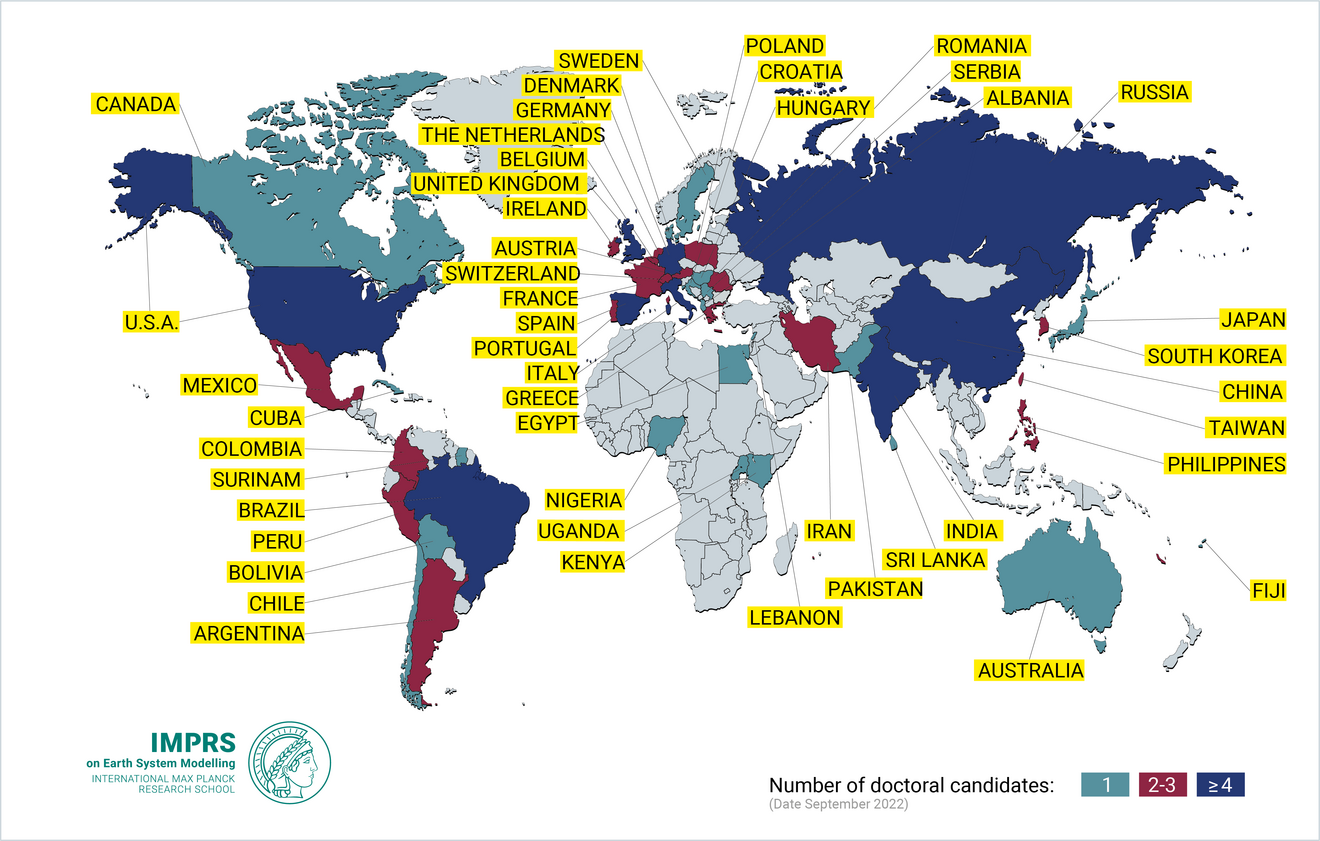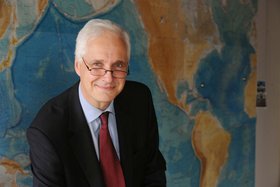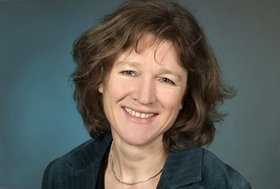
Weitz: “Young academics from all over the world, who were trained in very different scientific disciplines, work on their individual and unique PhD projects under the integrating umbrella of 'Earth System Modelling'. Nevertheless, they form a group of mutually appreciative and supporting colleagues across the participating institutes.”
Claussen: “The IMPRS-ESM is a structured programme, the first of its kind at Universität Hamburg — if my information is correct. It has therefore served as a blueprint and model for other graduate schools in the Faculty of Mathematics, Informatics and Natural Sciences. Moreover, the IMPRS-ESM office simply is first class!”
Weitz: “The focus on high quality and topicality of the individual dissertation projects, the provision of excellent working conditions and individual supervision, while at the same time supporting individual, highly specialized scientific training paths and career developments, as well as administrative and personal support in the many aspects of a PhD candidate´s life.”
Claussen: “… and of course very good and highly motivated PhD candidates! We take a lot of effort in the selection process.”
Weitz: “The IMPRS-ESM offers a clear programme structure that gives priority to excellent scientific research projects. Therefore, the focus is on the institutional and social integration of PhD candidates, and the success of the doctoral programme is based on good supervision with a ‚personal touch‘.”
Claussen: „… I can only emphasize that, too. So far I have only heard from our PhD candidate representatives at the Max Planck Society that the others envy us for the IMPRS-ESM.”
Weitz: “The Max Planck Institute for Meteorology and Universität Hamburg have been running the international, structured doctoral programme IMPRS-ESM very successfully since 2002. This continuity was achieved through regular external evaluation of the programme and its routine adaptation to new findings, so that IMPRS-ESM is now in its fourth 6-year funding period.”
Weitz: “We were able to attract PhD candidates with very different academic backgrounds to participate in the IMPRS-ESM. For example, we have candidates with a Master's degree in Climate Studies, Atmospheric Science, Chemical and Biomolecular Engineering, Economics, Geography, Mathematics, Meteorology, Physics, and Space Science & Technology.”
Claussen: “Roughly speaking, the overarching topic is the dynamics of the physical, chemical and biological components of the Earth system in the past, present and future. This also includes the economic and sociological aspects of human interaction with the Earth system — a very broad spectrum of research fields.”
Weitz: “High quality academic training covering all areas that successful scientists in Earth system research should be familiar with, as well as an excellent professional network and the self-confidence for successful work in the international scientific field or even in a versatile non-scientific environment.”
Claussen: “The doctoral thesis is the ‘journeyman´s piece’ in science. I would therefore like to teach PhD candidates to work independently, always critically self-reflecting, and to take responsibility for their own work in particular. At least some of this should have been learnt in the master's thesis — but that is not always the case. For those who want to stay in science, I try to give them a good start in life as a scientist, e.g. by providing contacts. All this is systematically followed up in the IMPRS-ESM.”
Weitz: “It is not so much a special gift that is remembered as the realization that all newcomers bringing a gift are eager to give a specific — for us 'foreigners' — recognizable greeting from their home country.”
Claussen: “Exactly... whereas the presentation of gifts depends very much on the culture. Host gifts tend to come from Asian candidates.”
Weitz: “Actually, all of them remain very present as faces — but in their respective youthful appearance during the PhD phase. If an alumnus comes back to the IMPRS-ESM office after 15 years, for example, the change in appearance can be quite astonishing.”
Claussen: “Yes — there are some highly talented graduates who I remember in particular. In fact, I have very positive memories of all the graduates in my department, and I am happy to see them and to stay in touch. There was only one single case of a PhD candidate whom I had to part with after several years of vain effort.”
Weitz: “Not really, because at that moment you are convinced that all of them have fully mastered their doctoral topic and have prepared themselves very well for the disputation. To present and discuss their own research projects and results in good lectures is their 'scientific bread and butter' and it is also part of what they have been training for years in the IMPRS-ESM.”
Claussen: “...and yet I'm getting a little excited. I hope that the candidates do as well as possible. They have prepared themselves as well as possible, and I always really hope that it works out.”
Website of the International Max Planck Research School on Earth System Modelling (IMPRS-ESM)

Prof Dr Martin Claussen
Director and Head of the IMPRS-ESM
Max Planck Institute for Meteorology
Email: martin.claussen@mpimet.mpg.de

Dr Antje Weitz
Coordinator IMPRS-ESM
Max Planck Institute for Meteorology
Email: antje.weitz@mpimet.mpg.de